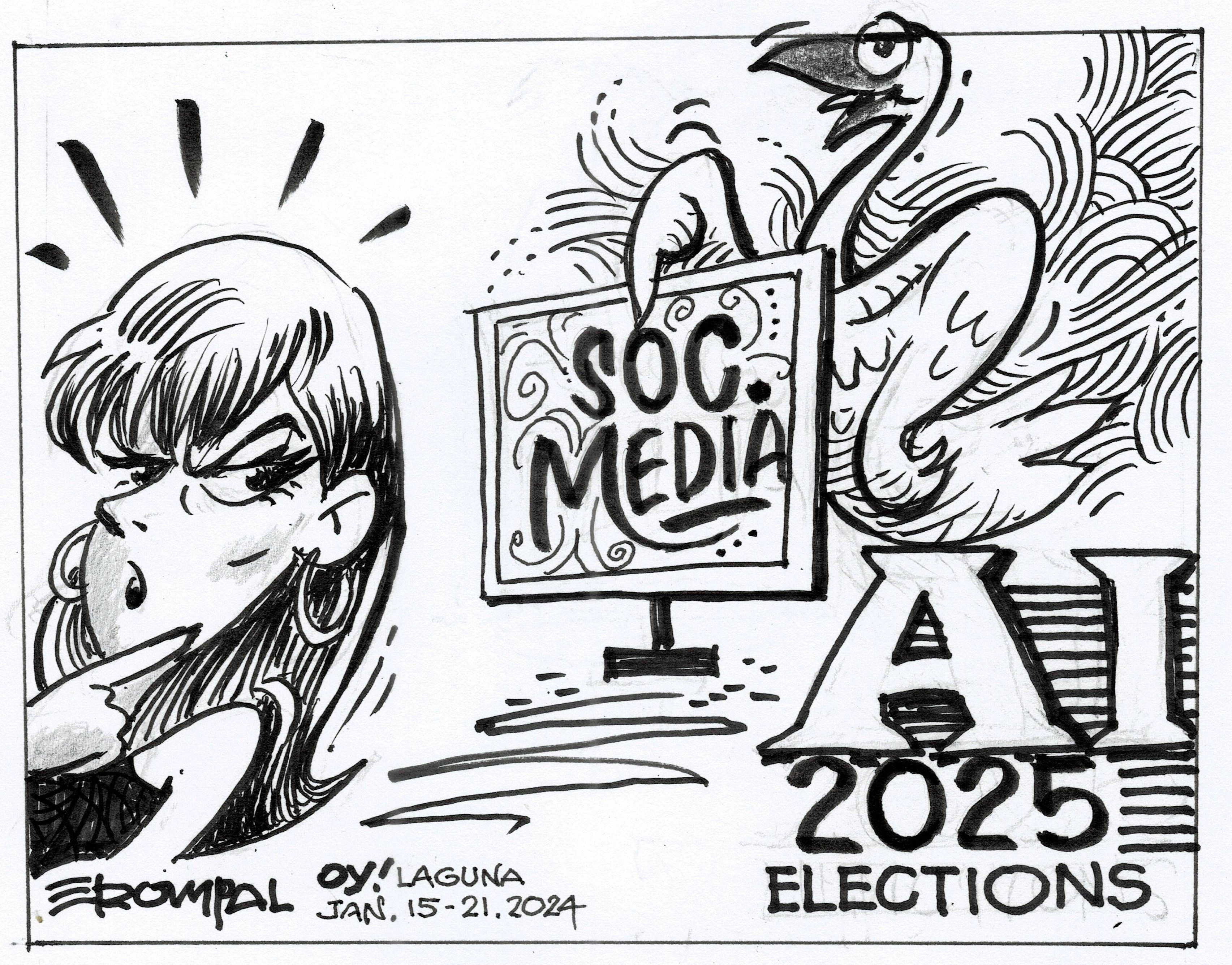Patajak Politics: A Catalyst for Change or a Path to Corruption?
Patajak politics refers to a political strategy that leverages patronage and personal connections to gain and maintain power. While often criticized for fostering corruption and clientelism, it can also serve as a means to strengthen relationships and address community needs in areas where formal institutions are ineffective or absent. This approach highlights the intricate balance between leveraging personal networks for progress and the potential risks of abuse.
Personal connections hold immense importance in the political arena. Many cultures prioritize trust and support for individuals they know and admire, sometimes overshadowing qualifications. Patajak politicians exploit this by cultivating personal relationships with voters, often through patronage or favors. In return, these voters are expected to reciprocate by supporting the politician during elections. This dynamic underscores the significance of interpersonal bonds in shaping political landscapes.
Read also:Understanding The World Of Passionate Beginners The Journey Of Desperate Amateurs
Patajak politics can serve as both a powerful instrument for positive change and a perilous game. When misused for corruption and self-serving agendas, it undermines democracy and contributes to instability. Conversely, when employed to build robust relationships and address community needs in contexts with weak formal institutions, it can drive meaningful progress. Navigating this dual nature requires careful consideration and ethical application.
Exploring the Complexities of Patajak Politics
Introduction: Patajak politics is a multifaceted phenomenon encompassing patronage, personal connections, corruption, and clientelism, each playing a pivotal role in its dynamics.
Key Aspects:
Patronage: The allocation of government resources to reward political supporters.
Personal Connections: The reliance on personal relationships to ascend and sustain political power.
Corruption: The exploitation of public office for private gain.
Read also:Jung So Min The Legacy Of Family And The Entertainment Industry
Clientelism: The exchange of goods and services for political backing.
These interconnected elements can form a robust political foundation but also foster corruption and self-serving behavior. The challenge lies in harnessing patajak politics for positive outcomes while avoiding its detrimental aspects.
The Intersection of Patajak Politics and Corruption
Introduction: Corruption remains a pervasive issue in numerous countries, with patajak politics often exacerbating the problem. Corruption manifests when public officials exploit their positions for personal gain, such as accepting bribes or embezzling funds. Patajak politicians, reliant on personal connections and patronage, may be more inclined toward corrupt practices to maintain their influence.
Facets:
Bribery: The exchange of money or valuable items for political favors.
Embezzlement: The theft of public funds for personal use.
Extortion: The use of threats or force to secure money or valuables.
Corruption poses a significant threat to democracy and stability. While patajak politics may contribute to this issue, it is not the sole factor. Weak institutions, lack of transparency, and a culture of impunity also play critical roles in perpetuating corruption.
Examining the Link Between Patajak Politics and Clientelism
Introduction: Clientelism represents a system of political exchange where voters offer support to politicians in return for goods and services. While it can be a form of corruption, it also serves as a mechanism to build strong relationships and address community needs in environments with weak formal institutions.
Further Analysis: Clientelism frequently relies on personal connections and patronage. Politicians may provide jobs, housing, or other benefits to their supporters in exchange for votes. This can create a cycle of dependency, where voters rely on politicians for basic necessities. However, clientelism can also facilitate community engagement and problem-solving in contexts lacking effective institutional frameworks.
Summary: Clientelism embodies a complex dynamic with both advantages and drawbacks. It can represent a form of corruption but also a means to foster strong relationships and drive progress in communities with weak formal institutions. The challenge is to leverage clientelism constructively while avoiding its negative implications.
Final Thoughts on Patajak Politics
Patajak politics serves as a powerful tool capable of driving positive change or instigating harmful consequences. Recognizing its potential risks and benefits is essential to ensure its application promotes progress while mitigating its darker aspects.
Unpacking Patajak Politics
Patajak politics, characterized by strategies that exploit patronage and personal connections, involves several critical dimensions that define its character and influence:
- Patronage: The distribution of benefits to supporters for political advantage.
- Clientelism: The exchange of goods and services for political allegiance.
- Corruption: The misuse of public office for personal benefit.
- Nepotism: Favoritism toward relatives in appointments and promotions.
- Cronyism: Preference for close associates in awarding contracts or positions.
- Prebendalism: The allocation of public resources as personal favors.
- Patrimonialism: Governance based on personal authority and loyalty rather than formal institutions.
- Personalism: An emphasis on leaders' personal qualities over their policies or platforms.
These interwoven aspects create a complex political terrain where personal ties and loyalties frequently supersede institutional norms and transparent governance. While patajak politics can perpetuate inequalities, hinder economic development, and erode trust in public institutions, it can also cultivate a sense of community and provide support networks in settings where formal institutions are inadequate.
Patronage: Rewarding Supporters for Political Gain
Patronage constitutes a cornerstone of patajak politics, a strategy centered on personal connections and the distribution of benefits to secure and preserve power. Patronage assumes various forms, including offering jobs, housing, or other advantages to supporters in exchange for their votes or backing. It may also involve utilizing government resources to reward allies or penalize adversaries.
Patronage can effectively establish a loyal political base but may also lead to corruption and clientelism. When rewards are based on loyalty rather than qualifications, governance quality may suffer, and public services may decline. Clientelism, the exchange of goods and services for political support, can create a cycle of dependency, where voters rely on politicians for their essential needs.
The relationship between patronage and patajak politics is intricate. While patronage can empower politicians, it can also engender instability and corruption. Balancing its use for good while avoiding its pitfalls is crucial.
Clientelism: Goods and Services in Exchange for Political Support
Clientelism involves a political exchange where voters provide backing to politicians in return for goods and services. Although it can represent a form of corruption, it also serves as a method to build strong relationships and address community needs in environments with weak formal institutions.
In the context of patajak politics, clientelism often hinges on personal connections and patronage. Politicians might supply jobs, housing, or other benefits to their supporters in exchange for votes. This can establish a cycle of dependency, where voters become reliant on politicians for their basic requirements. However, clientelism can also build strong relationships and drive progress in communities with weak formal institutions.
Clientelism embodies a multifaceted phenomenon with both constructive and destructive dimensions. It can signify corruption but also a means to foster strong relationships and drive progress in communities with weak formal institutions. The challenge is to utilize clientelism beneficially while avoiding its adverse effects.
Corruption: Misusing Public Office for Personal Gain
Corruption refers to the misuse of public office for personal benefit, manifesting in various forms such as bribery, extortion, and embezzlement. Corruption poses a significant challenge in many countries, with devastating impacts on development and stability.
Patajak politics relies on personal connections and the distribution of benefits to gain and maintain power, often involving corruption. Politicians may exploit their positions to reward supporters and punish opponents, creating a cycle of corruption where politicians become beholden to special interests and neglect the public good.
The connection between corruption and patajak politics is complex. While corruption can empower politicians, it can also lead to instability and a decline in public trust. Combating corruption without undermining the legitimacy of the political system is essential.
Nepotism: Favoring Relatives in Appointments and Promotions
Nepotism, the practice of favoring relatives in appointments and promotions, is a prevalent feature of patajak politics. This occurs because patajak politics relies on personal connections and patronage to gain and maintain power. Nepotism can serve as a way to reward loyal supporters and build a strong political base.
Nepotism can have adverse consequences, leading to unqualified or incompetent individuals occupying important positions. It can also generate a sense of unfairness and resentment among those not related to the politician in power. In some cases, nepotism can even precipitate corruption, as relatives may receive preferential treatment in awarding contracts or other benefits.
Combatting nepotism involves establishing clear rules and procedures for appointments and promotions, creating independent oversight bodies, and raising public awareness of its dangers.
Cronyism: Favoring Close Associates in Awarding Contracts or Positions
Cronyism, the practice of favoring close associates in awarding contracts or positions, is a common feature of patajak politics. This occurs because patajak politics relies on personal connections and patronage to gain and maintain power. Cronyism can serve as a way to reward loyal supporters and build a strong political base.
- Role of Cronyism in Patajak Politics: Cronyism allows politicians to reward their close associates with lucrative contracts and positions, fostering loyalty and silencing critics.
- Examples of Cronyism: Common examples include awarding government contracts to companies owned by friends or family members of the politician or appointing unqualified individuals to important positions due to closeness to the politician.
- Implications of Cronyism: Cronyism can lead to unqualified or incompetent people occupying important positions, creating a sense of unfairness and resentment among those not close to the politician in power. It can also precipitate corruption.
- Combating Cronyism: Establishing clear rules and procedures, creating independent oversight bodies, and raising public awareness of the dangers of cronyism are effective strategies to combat it.
Cronyism is a significant issue that can undermine the integrity of political systems and erode public trust. Awareness of its dangers and taking measures to combat it are crucial.
Prebendalism: Distributing Public Resources as Personal Favors
Prebendalism, the distribution of public resources as personal favors, is a common feature of patajak politics. This occurs because patajak politics relies on patronage and personal connections to gain and maintain power. Prebendalism can serve as a way to reward loyal supporters and build a strong political base but can also lead to corruption and a decline in public services.
- Role of Prebendalism in Patajak Politics: Prebendalism allows politicians to reward their supporters with access to public resources, fostering loyalty and silencing critics.
- Examples of Prebendalism: Common examples include allocating government jobs to supporters or awarding government contracts to companies owned by friends or family members of the politician.
- Implications of Prebendalism: Prebendalism can lead to unqualified or incompetent people occupying important positions, creating a sense of unfairness and resentment among those not close to the politician in power. It can also precipitate corruption.
- Combating Prebendalism: Establishing clear rules and procedures, creating independent oversight bodies, and raising public awareness of the dangers of prebendalism are effective strategies to combat it.
Prebendalism is a serious issue that can undermine the integrity of political systems and erode public trust. Awareness of its dangers and taking measures to combat it are crucial.
Patrimonialism: Rule Based on Personal Authority and Loyalty
Patrimonialism, governance based on personal authority and loyalty rather than formal institutions, is a common feature of patajak politics. This occurs because patajak politics relies on personal connections and patronage to gain and maintain power. Patrimonialism can create a strong and stable political system but can also lead to corruption and a decline in public services.
- Role of Patrimonialism in Patajak Politics: Patrimonialism allows politicians to rule based on their personal authority and loyalty rather than formal institutions, fostering loyalty and silencing critics.
- Examples of Patrimonialism: Common examples include using personal networks to appoint government officials or using personal wealth to fund political campaigns.


